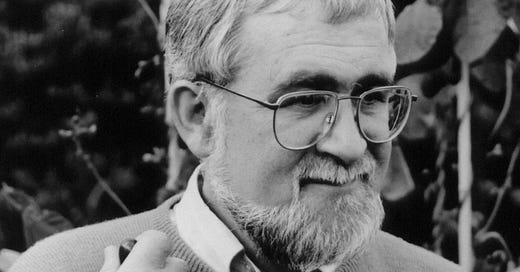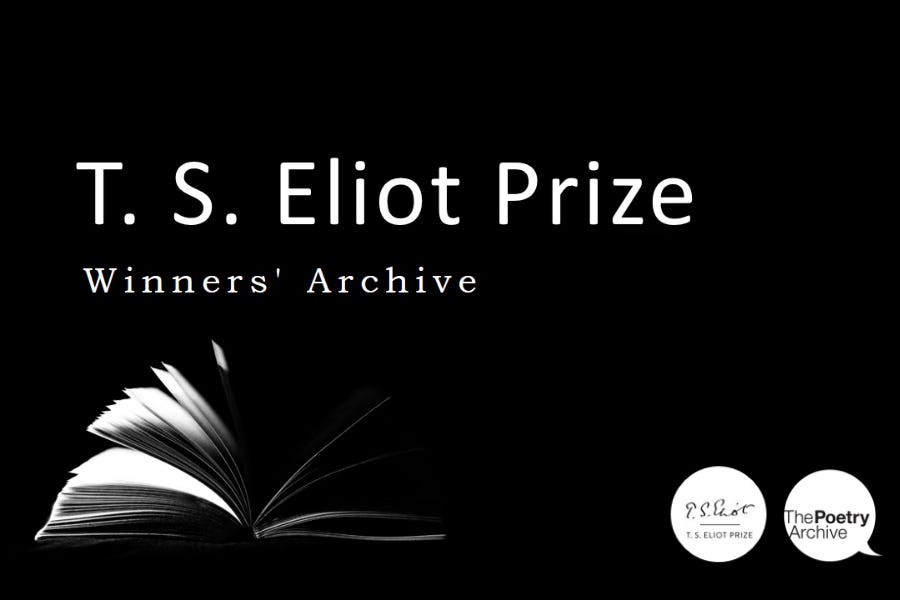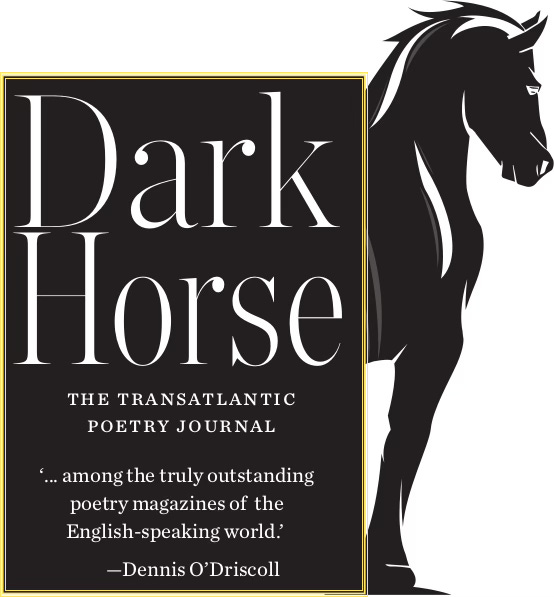Winners and Losers: The Death of the Poetry Critic
Ben Wilkinson on the current state of reviewing culture
North Sea Poets will publish guest posts on our Substack from time to time: these pieces don’t necessarily reflect our own opinions – though these vary considerably even within the NSP collective, and our guests will add to that chorus of individual voices. What matters to us is writing which fosters the ideals of excellence as practitioners, curiosity as readers, and generosity as teachers. We’re delighted to present this important new essay by the poet, editor and critic Ben Wilkinson.
Winners and Losers: The Death of the Poetry Critic
by Ben Wilkinson
“Reading reviews of modern poetry is like attending a prize-giving in a small, caring primary school: everyone has done terribly well, it’s all absolutely marvellous.”
So ‘Harvey Porlock’, the emboldened pseudonym of one Terence Blacker, reported on the efforts of poetry reviewers in the Sunday Times back in the mid-’90s. Granting the odd exception, you’d be hard pressed to argue otherwise, and things have only worsened since. Friendly encouragement for beginners is one thing, but once a poet is at the advanced stage of putting a book out into the world, i.e. tentatively but seriously offering their work for intelligent readers’ honest appraisals, donning the kid gloves and trumpeting the philosophy of the booster club serves no one. Poetry’s sickness, as has often been noted, is that too many of its readers are also its writers. (Even if it’s understandable that a form which prides itself on unpicking our cosy assumptions and bringing fuzzy emotion into sharp relief is never likely to achieve wide appeal without ceasing to be itself, pace Instapoetry.) But when almost all the reviewers are also poetry’s practitioners (and what’s more, practitioners in a small world full of prize panels – more on that later), you know the art is in trouble. Marking one’s own homework might feel good at first, but as the teacher’s caution goes, in the end you’re only cheating yourself. There will likely always remain a handful of (fool)hardy souls who commit to poetry reviewing with genuine integrity, but, as Mary Kinzie declared in a letter to Poetry magazine around the time I stumbled onto this strange path myself, to do so is “burdensome artistically, exhausting over time, damaging to one’s reputation, the source of rebuffs both private and professional… an enterprise only a few people do credibly or well.”
Is it practically impossible to be an honest poet-critic today? “Until recently,” as Carmine Starnino put it nearly two decades ago, “that hyphen was a badge of a special authority.” Those writing critically about their own craft were considered by many to be poetry’s ideal readers. Starnino attributes the gig’s demise to “life after theory.” As soon as postmodern thought began to dominate the academy in the latter part of the twentieth century, literary criticism for the general reader looked to be on shaky ground. Even the most formidable close reading couldn’t make up for theory’s assessment of aesthetic value as an ideological fairytale. “What eventually filtered down to street level – if the industry-wide outbreaks of shock at negative reviews are any guide – was a hypersensitivity to strong opinions and the taste-correcting urge lurking inside.” Sure, there might be those few poetry critics left who quaintly imagine they are committed to what Joel Brouwer calls “literary jury service”, attempting the “honest, descriptive, detailed, clarifying criticism” that Douglas Dunn approved of. “It keeps poetry healthy– it’s poetry’s weedkiller and, to the extent it encourages what’s best in writing, it nurtures it too. No good growth without good gardeners.”
These good folks have proven deluded. In our enlightened new era, the poet-critic as gardener finds rewilding is in vogue; their tools are sharp, unfriendly and unnecessary, not least since nature itself prefers unfettered, ceaseless growth. And yet, if the better part of human nature insists on anything, isn’t it in giving shape to fundamental chaos? We can’t help but seek pattern and meaning everywhere. To water the metaphor (forgive me: I’ve been trying, of late, as I recover from work-related burnout and long Covid, to wrestle my little backyard into some semblance of order), I’m not talking manicured gardens, though they have their charm and place. I’m suggesting that even the freest rewilding project involves some kind of cultivation, some shapely intervention, else a handful of wildly virulent strains crowd out other kinds of desirable growth. It’s the human project, and, in the end, poems are not random. As the ancient Greeks knew, they are deliberately made things, put forward for appreciation and appraisal. As flora, they’re a discerning selection, the choice “flower-gathering” which is the literal translation of the ancient Greek for our anthology.
I’ll drop the extended metaphor now, you’ll be glad to hear, before it goes full triffid. But you get the gist. Intelligent, detailed, non-academic discussion of poetry remains a requirement. I’m yet to encounter a convincing argument otherwise– or rather, a convincing argument as to what might replace it. Some have suggested the only criticism poetry requires is poetry itself, but this stance overlooks the ways in which all art (even poetry!) enjoys an uneasy relationship with commerce and market forces and so is always in need of honest redress. Likely now more than ever. “Discrimination is needed,” as Michael Hamburger warned. “Without it, art succumbs to the randomness of commercialism, in which the shoddy product can displace the well-made and durable simply by being more effectively marketed.”
Paul Farley took the pulse at the turn of our millennium, when he half-joked that his ’60s-born generation hadn’t had criticism, they’d had marketing. He was referring to initiatives like the Poetry Society’s New Generation Poets of 1994, a PR attempt to make a newly diverse wave of younger poets seem like the “new rock ‘n’ roll”. What these poets also had in new abundance was literary prizes, and these have only proliferated as the years have rolled on. A decade ago, I published a short piece wondering at the perils of being a poetry reviewer. (Spoiler: there are plenty.) In the end, as I reflected at the time, it isn’t occasionally upsetting folks– that happens to anyone who lives an honest life. Nor is it unwittingly shutting doors on yourself. It isn’t publicly broadcasting your opinions, however scrupulously worded, in ways that might make you wince years down the line. The real peril is more of a threat: that you work to become as astute a critic as possible, and the worst warnings still turn out to be true: the critical culture is forever losing ground to a fast-food one, and cash prizes, administered by a process marred with conflicts of interest, are the endgame of literary reception. So it seems to have proved.
What’s wrong with literary prizes, you ask? Nothing, in and of themselves. How ever misguided you might consider their aims, the Forward Prizes for Poetry and the T. S. Eliot Prize, to name two of the most well-known in these isles, stemmed in the ’90s from a broadly praiseworthy desire to promote excellence in new British poetry to the general literary reader, much in the fashion of the Booker Prize and the contemporary literary novel. A little glam and glitter, with the promotion afforded to shortlisted poets and the eventual winner intended to kick up a media fuss, and bring new readers to contemporary poetry. (No coincidence that the T. S. Eliot Prize was first administered by the Poetry Book Society, an organisation founded by Old Possum himself to build a wider intelligent audience for new verse.) But literary prizes have become a victim of their own success. Not, sadly, in reliably widening the audience for excellent poetry, but in their steady proliferation and growing influence in poetry circles as the main vehicle of literary reception. As Carcanet grandee Michael Schmidt once claimed, if you control the prizes, you control the culture of reception. Meanwhile, as Tim Parks lamented in a recent column for the TLS, reflecting on literary juries with an insider’s eye, “over the years there has been less and less media space for serious reviews. But the prizes multiply, as if the only thing that can fire up enthusiasm for literature is a narrative of winners and losers.”
Alongside the rise of the poetry prizes, and that narrative of ‘winners’ and ‘losers’ which reduces poets and their books to competing products, the continued democratisation of the art and relative ease of print publishing has meant more new poetry collections appear each year. (I’m talking the remaining commercial and many independent poetry presses here, not the vanity or self-publishing kind.) But the celebrations of increased accessibility and diversity are dampened by less and less of this poetry receiving serious attention and appraisal, given the continued decline of our critical culture and the subsequent dwindle in media space for poetry reviews. Misleading statistics are routinely touted as evidence of the opposite, of course: online influencers’ snippets of alleged self-help and clichéd affirmation, for example, packaged by gift-book imprints into effective money-making spins, are heralded as evidence of a ‘poetry boom’. To which it must be said that the Big Mac is a bestselling but nevertheless substandard burger, a fact apparent when you stop to consider the lukewarm, sad, hastily assembled thing you find in the box you’ve just bought, rather than the promise of its hyperreal version in McDonalds’s near-constant barrage of advertising.
If this is starting to sound a bit exasperated, it’s because I have always, honestly, deeply valued excellent poetry reviews. I don’t think I’m alone in this. All have their flaws, inherent to any careful, considered, yet ultimately subjective judgement, argued from a set of developed aesthetic principles. But I remain convinced that serious, non-academic poetry reviews aimed at the general literary reader are still our best tool for the illuminating, healthy appraisal of our literature. As the politician said of democracy, it’s the worst form of government, until you consider the alternatives. Besides, the most common argument levelled against reviews, poets’ own hypersensitivities aside, is that their subjectivity renders them problematic; in its most extreme form, this inevitability is seen as evidence of the critic’s hidden motives. To which: we should always remind ourselves that every prize panel declares their shortlists and winners based entirely on private negotiation, without much, if any, published justification.
In a healthy critical culture, a single review is never offered as the most significant public pronouncement on a book’s apparent merit. It is one considered contribution to a much wider, clarifying discussion, of that book and of poetry more broadly, in which a range of honest, intelligent critical voices keep our conversations about what poetry is, can be, and perhaps should be, lively, robust, and truthful. That requires not only astute and informed poetry reviewers, but also, crucially, honest ones. As Wendy Cope once quipped, with the humour that can best deliver serious truths, “you can’t review a book if you’re not prepared to be rude about it if you don’t like it.” Christian Wiman wasn’t wrong either: “If a critic gets ten books sent to them for review, and they find six or seven of them are excellent, then they are either the luckiest poetry reviewer on the planet, or they have no taste.” But when the poet-critic has one eye on the book they’re reviewing and another on whether its author might be on the next prize-judging panel, poetry ends up the real loser. Worse still, if the environment in which poetry reviews are published is one where each book is presented as a special case, deserving of its own special treatment by special hands, the scope of reviewing becomes depressingly limited.
Here’s a case in point. Even a newly valuable and welcome initiative like that of the Ledbury Poetry Critics, a scheme created in 2017 to diversify poetry criticism through specifically championing critics of colour, has inevitably succumbed to – and, at times, unwittingly encouraged – poetry reviewing’s ongoing decline. While promoting a new wave of British poetry reviewers of the global majority (a disproportionate number of whom are privately-educated Oxbridge graduates from the moneyed middle classes, but you can’t have everything), it has also played a not-insignificant part in further propagating the delimiting idea that the apparently ‘defining’ identity characteristic of a book’s author should determine its assignation to a critic of the same. It’s not unreasonable to argue for this approach on the basis of countering tribal ineptitude, of course. But as a stance, it’s also very much a way, intended or not, of guarding against actual criticism, and so of turning criticism into yet more disingenuous marketing. It also ends up, in the case of the Ledbury Critics, undermining a project which would surely claim intersectional aims, in reducing its conception of poetry (which, like all literature, is so often most valuable in its ability to variously connect us), to a series of discreet sectional concerns.
Still, as is de rigueur these days, in contemporary poetry at least as much as anywhere else, if each of us can only speak of, and so appraise, our own lived experience and that which apparently lives nearest to it, I can at least describe my own love of the genuine poetry review, and how I came to try to write these things. Not so much in the hope of converting the sceptic, but at least to give further colour and personality to my argument, and to champion this little hill it seems I long ago committed to dying on.
I started reviewing at much the same time I was beginning to take my own poetry writing seriously, in my final year as an awkward, self-doubting, yet quietly determined undergrad. (All legacies of a bog-standard comp education and growing up in a working-class single parent household, for what it’s worth). I think I must have sensed that writing poems and reviewing were overlapping endeavours, a way of stretching and questioning my reading habits, honing a sense of what I thought poetry was capable of, how and why poets succeeded or failed in their poems, and what I wanted for my own. As with my poems, these reviews progressed by fits and starts, the works of an apprentice artist (if you could call him that), with most failures mercifully consigned to student magazines and newspapers lacking internet archives.
It was around this time, immersing myself in new poetry instead of studying the things I should have been, I vividly recall coming across some of the most witty, smart, engaged and engaging prose I’d read, in the form of electric, genuinely discerning poetry reviews by the likes of Ian Hamilton, Michael Hofmann, Ian Sansom. Reviews as memorable as a good poem. I soon began to recognise that, while they might share features in common, a good poetry review really wasn’t the same as a piece of academic writing. Sure, it wants to be informative, insightful, and to base its judgements on evidence and analysis. But unlike lit crit, it also has a duty to really engage and entertain its reader. Imagine them: an intelligent person, of course, but one who might at that moment be otherwise distracted, eating their cornflakes at the breakfast table, or tempted to watch the next episode of whatever Netflix series they’re into. A poetry reviewer wants to give them a reason to pay their words serious attention. Like a poem, I reckon if you’re not enjoying writing your review, chances are a reader won’t enjoy encountering it. I realised then that poetry reviewing was a valuable duty, but also something to have fun with, that it was necessary to strike a balance between critical insight and entertainment. I also began to recognise that reviewing was every bit an artform as poetry itself, and that getting any good was a lifetime’s work.
A reader today will find it a rarity to land on poetry reviews of the kind described above. Don’t get me wrong, there have always been perfunctory and tedious pieces, written hurriedly to deadlines or in the wrong spirit. And there remain today a handful of venues and poet-critics still seriously committed to the craft: I could mention journals like Poetry Birmingham and The Dark Horse, an online initiative like The Friday Poem, or Tristram Fane Saunders’s promising new magazine The Little Review; I should single out Naush Sabah, Rory Waterman, Rebecca Watts, and Declan Ryan for praise, as talented critics of frequent honesty and integrity. But the overall balance sadly continues to tip the other way. Detailed, honest, discerning reviews are fewer and fewer, especially in the non-specialist media. And since the decline of the poetry review has been the gradual result of the complex, interrelated factors of recent decades that I’ve looked to illustrate here, much of which have to do with whatever late stage of capitalism we seem to be trapped in, proposing solutions to this problem is tricky, and certainly beyond the scope of this brief diagnostic meander.
Still, despite the Barthesque attention-grabbing headline I’ve plucked for here, I’ve faith in the significant return of the genuine poetry review, and so the restored role of the poetry critic. Literary culture moves in slow cycles; it always has done. Give it time. Unless AI renders all complex human thought, including art, obsolete, and we settle into the poverty of stupefied and stupid subservience… but we’ll dismiss that terrifying thought (for now). A positive of the last decade in contemporary British poetry has been a renewed and active, if not very substantial, conversation about the need to reevaluate aesthetic standards. Thing is, the standards which the poetry mainstream some twenty, thirty years ago proposed, themselves a reaction to the predominantly male, white, moneyed middle-class and London-centric poetry culture that preceded it, will similarly need replacing with something. The alternative doesn’t wash: relying on the fallout of postmodern thought and cultural relativism only proves damaging and false when taken to extremes. Art of all kinds, in every culture, has and always will define itself in terms of limited talent, standards, and excellence. Genuine discernment is always needed. A robust and various critical culture, with the honest poetry review as its most reliable and trustworthy means, will be the way to restore that.
Ben Wilkinson is a poet, small-town escapee, and freelance critic who has consistently reviewed contemporary poetry for nearly two decades, for publications including the Guardian, Edinburgh Review, Magma, New Welsh Review, Poetry London, The Poetry Review, Stand, The Telegraph, and the Times Literary Supplement.
The next North Sea Poets course ‘Writing With …’ is now live! Each class in this seven-week course will feature a different subject covered by one of the North Sea Poets. The course will cover everything from landscapes and ghosts to Heaney and Plath.
Get all the details for upcoming courses and events at northseapoets.com 🌊









Refreshingly honest. Loved it.
Thanks for this interesting piece. Lyotard suggested that that every work of art is in search of its own rules, a somewhat atomizing view but one which has the merit of requiring critics to adopt a similar spirit of exploration rather than
exercise an overweening pride in